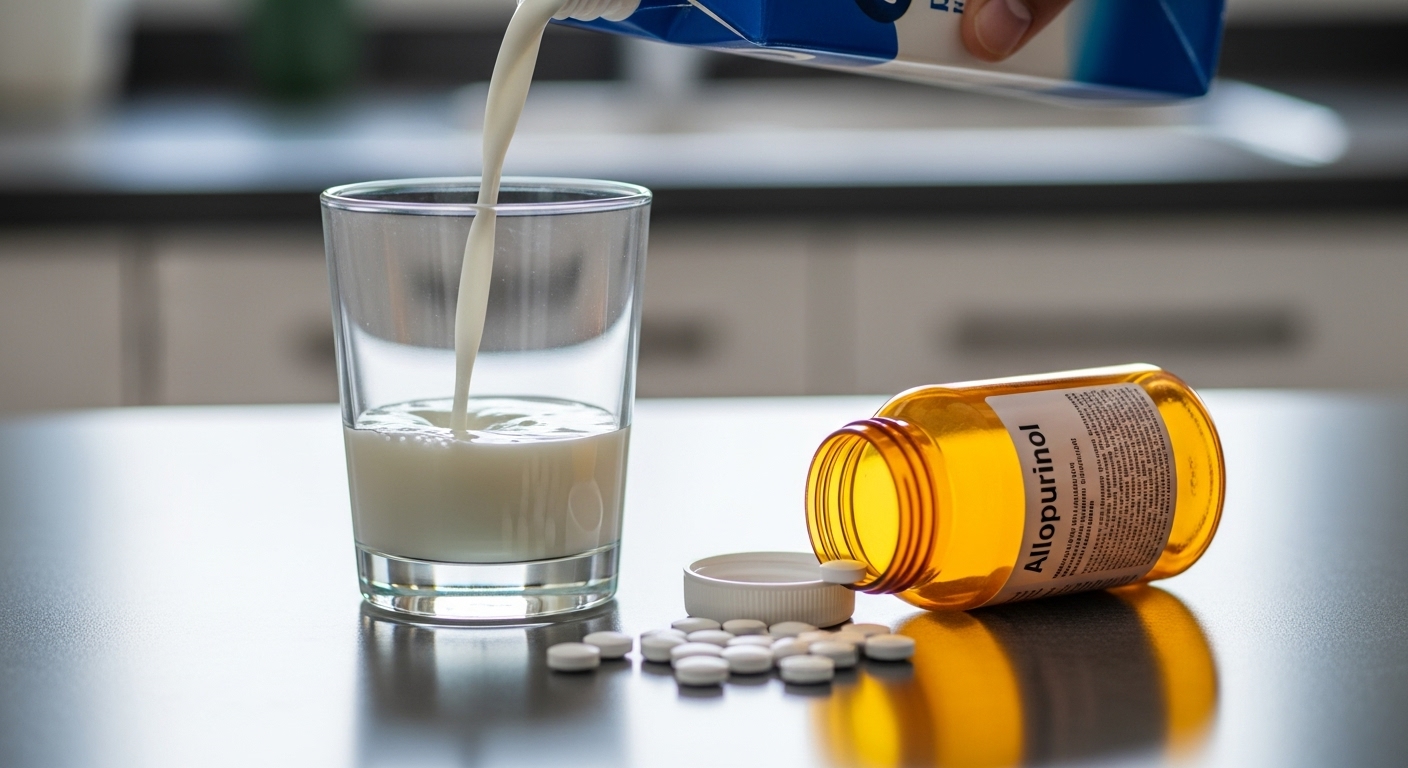Dr. Kumar’s Take
This review pulls together the strongest evidence on how everyday foods and drinks shape uric acid levels and gout risk. The key theme is balance: certain choices like low-fat dairy, vitamin C, and coffee lower risk, while alcohol, especially beer and spirits, consistently drives it up. Tea remains more uncertain, with mixed findings.
Key Takeaways
✔ Vitamin C (≥ 500 mg/day) lowers uric acid and reduces gout risk, though effect size is modest.
✔ Coffee (≥ 4 cups/day) is linked to lower uric acid and lower gout risk.
✔ Milk and yogurt consumption is consistently protective against gout.
✔ Beer and spirits significantly increase uric acid and gout risk; wine appears neutral in moderation.
✔ Tea shows mixed results, with no clear protective effect.
Actionable Tip
If you are prone to gout, aim to include one to two servings of low-fat milk or yogurt daily, coffee (if tolerated), and a daily source of vitamin C (either food-based or through a supplement). At the same time, cut back on beer and liquor, the biggest dietary triggers for uric acid spikes.
Brief Summary
The 2015 review in the International Journal of Rheumatic Diseases analyzed recent studies on diet and gout. It examined vitamin C, coffee, tea, alcohol, milk, and yogurt. The strongest protective effects were observed with vitamin C, coffee, and dairy products. In contrast, alcohol, especially beer and liquor, was a major risk factor for elevated uric acid and gout flare. Tea data were conflicting.
Study Design
This was a literature review that pooled data from randomized controlled trials, prospective cohort studies, and meta-analyses. It did not generate new patient data but summarized the collective evidence on diet and uric acid.
Results
- Vitamin C: 500 mg/day supplementation lowered serum uric acid modestly and reduced gout incidence in long-term follow-up studies.
- Coffee: ≥ 4 cups/day was associated with 40–60% lower gout risk in men and women, independent of caffeine.
- Tea: Results varied, with some studies showing no effect and others suggesting increased uric acid with green tea.
- Alcohol: Strong, dose-dependent risk, especially from beer and spirits. Wine in moderation did not significantly increase risk.
- Milk and yogurt: Low-fat dairy intake was consistently protective, lowering uric acid and gout incidence.
Biological Rationale: Why Diet Influences Gout
- Vitamin C promotes uric acid excretion in the kidney.
- Coffee may lower uric acid via antioxidant polyphenols and improved insulin sensitivity.
- Milk proteins (casein, lactalbumin, glycomacropeptide) increase uric acid clearance and may dampen inflammation.
- Alcohol, especially beer, contributes both ethanol and purines, which increase uric acid production.
- Tea catechins can inhibit xanthine oxidase, but real-world effects are inconsistent.
Practical Food Swaps
- Replace beer with sparkling water or kombucha at social gatherings.
- Swap red meat snacks for yogurt with berries to add dairy and vitamin C.
- Choose coffee over sweetened sodas or energy drinks to support lower uric acid.
Strengths and Limits
Strengths:
- Pulls together diverse global studies.
- Identifies consistent protective foods (dairy, coffee, vitamin C).
Limits:
- Some data are observational, so causation cannot be proven.
- Tea studies show conflicting results depending on type and population.
- Alcohol effects differ by beverage type, and wine findings are less clear.
Related Studies and Research
Alcohol and Gout Attacks: A Case-Crossover Study – Assesses how alcohol consumption impacts acute gout flares.
Loss of Uricase in Human Evolution and Health – Examines how the evolutionary loss of uricase shaped modern human metabolism.
Diet and Gout Risk: NEJM Study – Landmark study evaluating dietary patterns and their effect on gout risk.
Podcast: How to Make Gout Disappear from Your Life – A comprehensive look at modern and ancient gout science—and how to beat it.
Frequently Asked Questions
Should I take vitamin C supplements for gout prevention?
Yes. Around 500 mg/day has shown benefit.
Does drinking coffee daily protect against gout?
Yes. Four or more cups per day are linked to lower uric acid and gout risk. The effect is not due to caffeine alone.
Is wine safe if I have gout?
Moderate wine (less than 1 glass per day) does not appear to raise gout risk significantly. Beer and spirits are much riskier.
Should I switch to low-fat dairy?
Yes. Low-fat milk and yogurt consistently lower uric acid and protect against gout, likely due to proteins and bioactive compounds.
Conclusion
Diet makes a measurable difference in gout risk. The best-supported protective foods are vitamin C, coffee, milk, and yogurt, while beer and spirits remain the strongest dietary triggers.
If you live with gout or have elevated uric acid, focus on simple daily swaps: include dairy, consider vitamin C, and cut back on alcohol.


